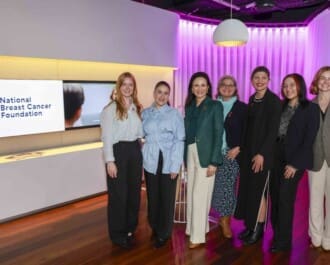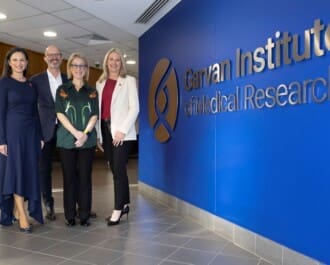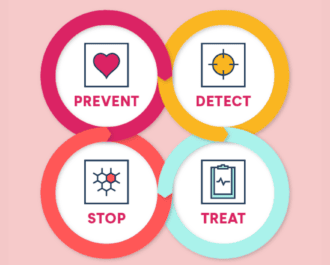
Dense breast tissue appears white on a mammogram. Most women have some dense breast tissue but it varies significantly between women. Women with heterogeneously or extremely dense breast tissue are often referred to as having “dense breasts”. Breast density is one of the strongest predictors of breast cancer risk, with women with extremely dense breasts being around five times more likely to develop breast cancer compared to those with little or no breast density. In addition, dense breast tissue makes detection of cancer on mammograms more challenging. As such, it is important that women with dense breasts are aware of the increased risks and the importance of regular screening.
In Australia, mammographic screening is free for all women aged 40+ via the population-based BreastScreen programs and all women aged 50–74 are actively targeted for routine biennial screening. However, only 55% of women in the targeted age-range participate in the BreastScreen programs.
BreastScreen Western Australia (WA) has been notifying women if they have dense breasts since 2008. In collaboration with BreastScreen WA, cancer epidemiologist Associate Professor Jennifer Stone (University of Western Australia), recently investigated whether breast density notification affects women’s likelihood of returning for important routine mammographic screening.
Her team examined 981,705 screening events from 311,656 women aged over 40 years who attended BreastScreen WA between 2008 and 2017. The results showed that women in the targeted age-range (aged 50-74) attending screening for the first time were more likely to return for screening if they were notified of having dense breasts. Younger women were less likely to rescreen if notified, regardless of whether they were being screened for the first or second time.
A/Prof Stone explained that women from different age groups respond differently to the current notification letter.
“Interestingly, the breast density notification did not deter women above 50 years from rescreening, but could potentially deter younger women from returning,” she said.
“Further research is critically needed to determine screening recommendations for women with dense breasts. In the meantime, we need ways to inform women, particularly younger women, about their breast density in a way that reinforces the importance of continued mammographic rescreening, vital for early detection and better breast cancer outcomes.”
The results were published recently in the journal Breast Cancer Research, and NBCF is proud to support A/Prof Stone and her work.
More News Articles
View all News


